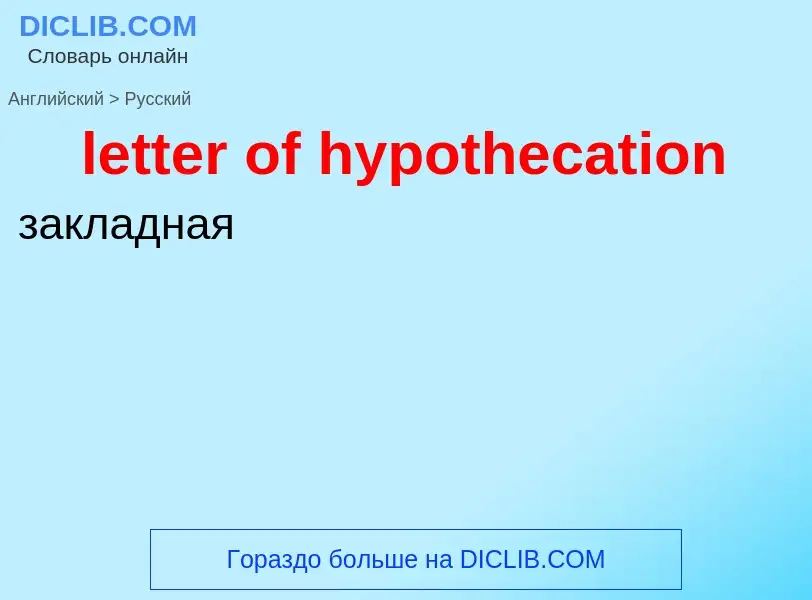Traduzione e analisi delle parole tramite l'intelligenza artificiale ChatGPT
In questa pagina puoi ottenere un'analisi dettagliata di una parola o frase, prodotta utilizzando la migliore tecnologia di intelligenza artificiale fino ad oggi:
- come viene usata la parola
- frequenza di utilizzo
- è usato più spesso nel discorso orale o scritto
- opzioni di traduzione delle parole
- esempi di utilizzo (varie frasi con traduzione)
- etimologia
letter of hypothecation - traduzione in russo
Definizione
.
Wikipedia
Hypothec (; German: Hypothek, French: hypothèque, Polish: hipoteka, from Lat. hypotheca, from Gk. ὑποθήκη: hypothēkē), sometimes tacit hypothec, is a term used in civil law systems (e.g. the law of all of Continental Europe except Gibraltar) or mixed legal systems (e.g. Scots law, South African law) to refer to a registered non-possessory real security over real estate, but under some jurisdictions it may sometimes also denote security on other collaterals such as securities, intellectual property rights or corporeal movable property, either ships only (ship hypothec) as opposed to other movables covered by a different type of right (pledge) in the legal systems of some countries, or any movables in legal systems of other countries. The common law has two equivalents to the term, namely mortgage and non-possessory lien.
Originating in Roman law, a hypotheca was essentially a non-possessory pledge over a person's entire estate, but during the Renaissance the device was revived by civil law legal systems as a hypothecatory security interest taken strictly over immovable property and, like the late medieval obligatio bonorum, running with the land (Latin jus persequendi, French droit de suite, Dutch zaaksgevolg, German Folgerecht). However, under a handful of mixed legal systems, the hypothec was imported as a non-possessory real security over movable property (in opposition to the common-law chattel mortgage). Whereas a pledge operates by bailment and transfers possession on delivery and a chattel mortgage operates by conveyance and transfers title, a hypothec operates by hypothecation and transfers neither possession nor title.
This real right in security operates by way of hypothecation, often arises by operation of law (generally statute), and gives a creditor a preferential right to have claims paid out of the hypothecated property as last recourse when the debtor is in default.
In the hypothec, the property does not pass to the creditor, nor do they get possession, but they acquire a preferential right to have their debt paid out of the hypothecated property; that is, they can sell it and pay themself out of the proceeds, or in default of a purchaser they can become the owner themself.
The name and the principle have passed into Scotland's civil law system, which distinguishes between conventional hypothecs, as bottomry and respondentia, and tacit hypothecs established by law. Of the latter the most important is the landlord's hypothec for rent (corresponding to distress in the law of England), which extends over the produce of the land and the cattle and sheep fed on it, and over stock and horses used in husbandry.

